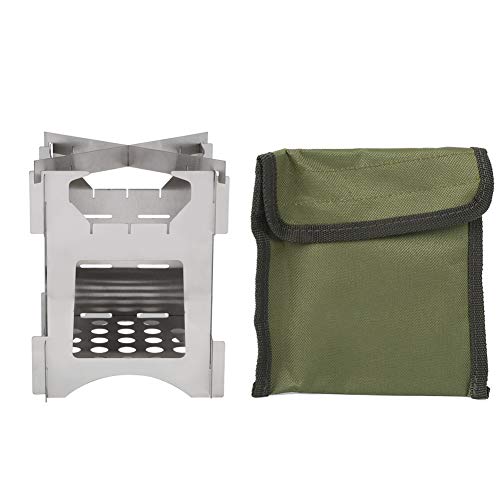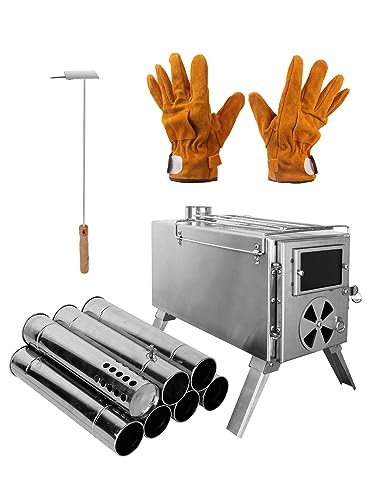10 Factors To Know To Know Wood Burning Fireplace You Didn't Learn In …
페이지 정보
작성자 Lacy 작성일 24-09-03 04:31 조회 177 댓글 0본문
 Maintaining a Wood Burning Fireplace
Maintaining a Wood Burning FireplaceNothing warms a home like the sound of a wood burning stoves outdoor burning fireplace. If you have one, it is essential to keep it maintained regularly to avoid dangerous creosote build-ups.
A damper is a crucial part of maintaining a good combustion. The type of firewood used can also make a difference and hardwoods like oak and ash producing less creosote than softwoods.
Energy Efficiency
small wood burning stoves for shed (Read the Full Article) fireplaces are a beautiful design that creates a cozy ambiance and provides warmth. They aren't energy efficient and could cause air pollution if not maintained correctly. The quality and condition of your chimney, firebox system, and installation could be a major factor in the overall efficiency.
Firewood is the main fuel source for a wood-burning stove. It is typically purchased in face cords or full cords (measured as 4'x8"x8") Before using firewood, it must be "seasoned" to reduce the amount of water and increase its energy density. If the wood is too wet it will not be able to burn efficiently and can create many creosote. Seasoning wood typically takes months to a year or more, based on the weather and climate conditions.
Wood burning fireplaces require a substantial investment of time and money to keep them correctly. In addition, to purchasing a large amount of firewood, owners should regularly check and clean their fireplace. This is to ensure that the chimney is free of obstructions, is working correctly, and that there is no combustible material near the unit. Regular cleaning and inspections can help reduce the risk of chimney fires and room fires.
The smoke that comes from a wood-burning fire place has fine particles that could cause lung damage and serious health issues such as heart attacks, cardiovascular disease and lung disease. It also releases carbon monoxide and other harmful air pollutants, such as volatile organic compounds, nitrogen oxides, benzene and formaldehyde. Wood smoke can contribute to the depletion of ozone in the atmosphere and greenhouse gases, as well as other pollutants that alter the climate of the earth.
Wood stoves that are EPA-certified efficient use an additional combustion process to minimize the production of harmful emissions when firing. To ensure optimal performance the stoves need a properly sized chimney as well as installation of a flue lining. It is essential to use seasoned wood and to avoid adding accelerants to the flame such as gasoline, lighter liquid or butane torch. This could cause a surge of fire, causing a dangerous situation. In addition, homeowners should store their firewood away from the home to prevent termite infestation.
Cleanliness
Wood-burning fireplaces offer a cozy alternative to other forms of heating. They also provide ambiance that can create a soothing atmosphere. They can be used for primary or supplemental heat and can be eligible for tax credits. They can be messy and require regular cleaning in order to prevent soot and creosote buildup. A fireplace that is dirty can cause unpleasant odors and toxins, and can negatively affect air quality in the home.
The most important thing to keep in mind when you are burning a fireplace made of wood is to use dry firewood. Kiln dried firewood helps reduce creosote buildup and soot. Kiln dried wood is treated by heating or kiln to remove all moisture. It is recommended to only burn clean, seasoned (burned) wood that has been split and stacked for a few months prior to use.
Before lighting a fire, clean up the ash from the fireplace floor and around the smoke shelf and grate. Make sure that the ashes are completely cool before taking them out of the metal waste bin to be disposed of. Make use of a brush or a Broom to sweep away any other stray materials that have accumulated outside the fire.
Wear gloves and an apron while cleaning a fireplace to shield yourself from the dust, soot and dirt that are created. You should clear a working area and cover any nearby furniture with drop cloths to guard against staining. You will also want to wear a dust mask to prevent inhaling any soot or ash particles.
Begin by filling up the bucket with a gallon of warm water. Add 3.8 teaspoons of trisodium (TSP) as well as one cup of bleach and two tablespoons of ammonia from your home. Mix well and then dip a nylon brush in the solution and scrub the walls and surrounding areas of your fireplace. After scrubbing the walls as well as surrounding areas of your fireplace, clean it off with an aqueous, damp cloth.
Repeat the scrubbing and wiping procedure until all visible deposits have been removed from your fireplace. When you're satisfied with the cleanness you can make use of a glass cleaner that is safe for wood-burning stoves to clean the glass doors.
Aesthetics
Wood fireplaces are beautiful that modern propane or gas fire places can't match. The rustic appearance of wood fireplaces and the sound of a burning fire and the cozy feeling they create have stood the test of time. This is a feature that a lot of people are looking for when shopping for fireplaces.
While wood-burning fireplaces are great for heating but they also release harmful gases into your home. These include carbon monoxide as well as smoke that could cause lung damage. While fireplaces are typically well-ventilated, it is important to have a system in place that can help get rid of these toxins. Many prefer zero clearance designs for fireplaces that burn wood, since they lower the amount of harmful gases that are present in their homes.
There are many different ways to design your wood fireplace to make it more unique and aesthetic. You can paint it to be in line with the interior decor of your living space or use reclaimed wooden to give it an even more rustic look. You can also build an edifice of stone that leads up to the fireplace, which creates an exciting and functional element in your home.
You can also alter the color of your chimney. The most popular option is black, which looks beautiful and matches most homes. You can also paint your fireplace white to make the room appear larger and create a bright airy ambience. Gray is another option that works well with many different styles and is a trendy trend. Some homeowners mix beige and grey together, also known as greige to celebrate this style and its versatility.
The best way to make a fireplace look less old fashioned or obtrusive is to paint it to match the walls around it. This can be done in a deep neutral that is on-trend, like grey, or a warm and earthy tone such as brick or terracotta red. The idea is to create a unified space that does not draw attention to itself, but rather blends in with the rest of the room. If you are unsure about which colour to go for, you can always ask a professional for advice.
Safety
If they are not maintained and operated in a safe manner If they are not maintained and operated properly, wood burning fireplaces could pose serious safety risks. They emit fine particle pollution that can enter deep into the lungs, causing lung diseases. They also release harmful air pollutants such as carbon monoxide and volatile organic compounds. nitrogen oxides and benzene. Wood smoke also contributes to climate change by releasing carbon dioxide and methane.
The flue of a wood stove must be regularly cleaned and inspected to ensure it is functioning correctly. A clean, functioning flue can help stop dangerous carbon monoxide leaks and chimney fires.
If the flue liner is getting worn out it is recommended to replace it or repaired immediately. It is also important to keep all combustible items away from the portable outdoor wood burning stove stove, including drapes, curtains and other flammable objects. It is a good idea to install cross-ventilation, which assists in moving warm air throughout the house so that it doesn't flow back up the chimney.
Ashes should be cleared of the fireplace regularly to avoid them accumulating too deep and blocking the air flow. A lot of ash can reduce the oxygen supply for logs, which will reduce the efficiency of combustion and resulting in more smoke. The ashes should be stored in a metal bucket or other noncombustible container.
 Children should be kept away from the area around the fireplace particularly if it has a glass front. If they touch hot surfaces, both during and after the fire, they can be burned. The various tools employed to maintain fireplaces including shovels, pokers log lifers, brushes, and others can be hazardous for children to handle. To prevent children from falling into the fire and causing harm, an "safety area" of three feet must be set up around it.
Children should be kept away from the area around the fireplace particularly if it has a glass front. If they touch hot surfaces, both during and after the fire, they can be burned. The various tools employed to maintain fireplaces including shovels, pokers log lifers, brushes, and others can be hazardous for children to handle. To prevent children from falling into the fire and causing harm, an "safety area" of three feet must be set up around it.Installing a carbon monoxide alarm and detector in the house is also a great idea especially if you have wood stove. Carbon monoxide is a hazard when the chimney and contemporary wood burning stove stove aren't functioning correctly, and it is harmful to breathe.
It is also crucial to check the state, local, and tribal regulations on wood-burning fireplaces. These rules could include nuisance/odor rules, "no-burn" days and visible emissions or opacity limits on smoke coming from chimneys of homeowners. These laws are often focused on reducing air pollution and are in place to protect public health.
- 이전글 The 12 Most Popular Treadmills Home Gym Accounts To Follow On Twitter
- 다음글 You'll Be Unable To Guess ADHD Test For Adults's Benefits
댓글목록 0
등록된 댓글이 없습니다.
